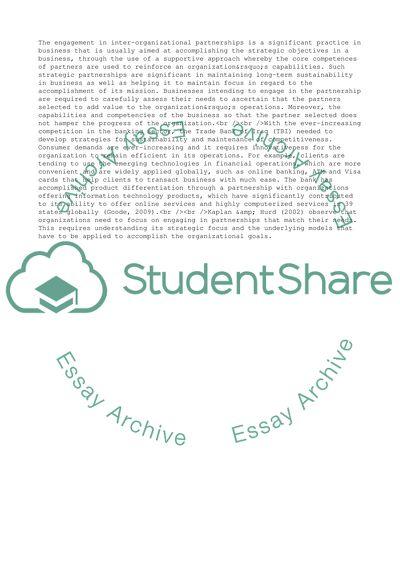Cite this document
(Strategic Inter-Organizational Partnerships: Trade Bank of Iraq Case Study, n.d.)
Strategic Inter-Organizational Partnerships: Trade Bank of Iraq Case Study. https://studentshare.org/business/1731962-w3-a
Strategic Inter-Organizational Partnerships: Trade Bank of Iraq Case Study. https://studentshare.org/business/1731962-w3-a
(Strategic Inter-Organizational Partnerships: Trade Bank of Iraq Case Study)
Strategic Inter-Organizational Partnerships: Trade Bank of Iraq Case Study. https://studentshare.org/business/1731962-w3-a.
Strategic Inter-Organizational Partnerships: Trade Bank of Iraq Case Study. https://studentshare.org/business/1731962-w3-a.
“Strategic Inter-Organizational Partnerships: Trade Bank of Iraq Case Study”. https://studentshare.org/business/1731962-w3-a.


